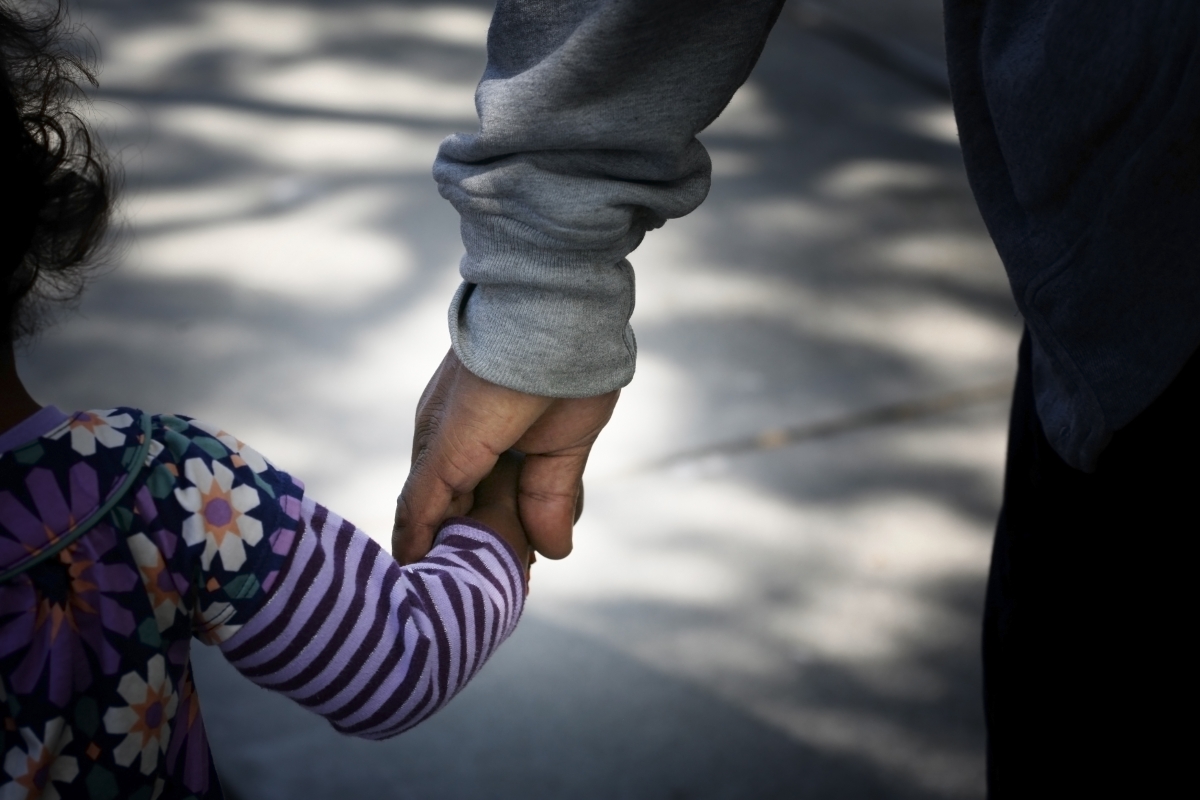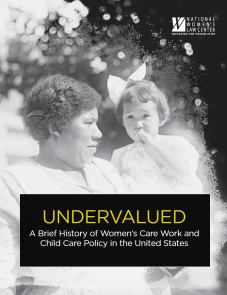Make your tax-deductible gift by December 31—every gift matched, up to $150,000!
In this moment, the future of our rights, our bodily autonomy, our freedom feels uncertain. What we do next will make a difference for decades to come.
Make your tax-deductible gift by December 31—every gift matched, up to $150,000!
In this moment, the future of our rights, our bodily autonomy, our freedom feels uncertain. What we do next will make a difference for decades to come.
Double your impact in the fight to defend and restore abortion rights and access, preserve access to affordable child care, secure equality in the workplace and in schools, and so much more. Make your matched year-end gift right now.

 I am a mom who works outside the home. I am a mom who has trouble affording good child care. And I am a mom who knows that the people – almost exclusively women – who care for my children five days a week don’t get paid enough for the incredibly hard job they have. (Seriously, my kids are what you might call “a handful” if you’re being really, really nice.)
I am a mom who works outside the home. I am a mom who has trouble affording good child care. And I am a mom who knows that the people – almost exclusively women – who care for my children five days a week don’t get paid enough for the incredibly hard job they have. (Seriously, my kids are what you might call “a handful” if you’re being really, really nice.)
I am also a mom who is lucky enough to have a job that allows me to ask – and try to answer – the question: why? Why is it so hard to afford child care in the U.S.? Why is it so hard for the women who provide that care to support their own families? Why does it feel like the job of raising the next generation to be decent human beings isn’t considered a very important one?
For months now, I’ve been looking into these questions – and in this cultural moment, perhaps it won’t surprise you that the short answer is: because sexism. Because racism. Because women – especially women of color – and the work they do have been undervalued in our society for centuries, and because our policies and our institutions have too often reinforced that problem rather than attempting to rectify it.
For example, did you know:
I didn’t, until I took on the research that ultimately yielded the report NWLC is releasing today – Undervalued: A Brief History of Women’s Care Work and Child Care Policy in the United States.
I hope you’ll read it. I hope you’ll learn something. And I hope you’ll decide to do something. Because it doesn’t have to be this way. Undervalued includes an overview of policies and strategies that can begin to create a system that works for both families and child care providers. To name just one example, the Child Care for Working Families Act (S. 1806/H.R. 3773) introduced in September would dramatically expand access to affordable, high-quality child care for working families and raise wages for child care providers by an estimated 26 percent, according to the Center for American Progress. And right now, as Congress debates how to fund the government for the remainder of FY 2018, Senators Elizabeth Warren and Bernie Sanders are calling for $2.9 billion increase in funding for the Child Care and Development Block grant – a really meaningful boost that would enable states to meet important health, safety, and quality standards in their child care programs while also allowing nearly 230,000 additional children to receive child care assistance.
For far too long, both our society and our public policies have vastly undervalued the “women’s work” of child care, and women—along with the families they support—have been especially harmed as a result. We know why our child care system is broken; now let’s get to work to fix it.